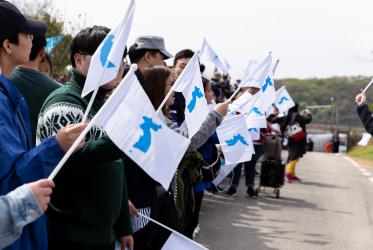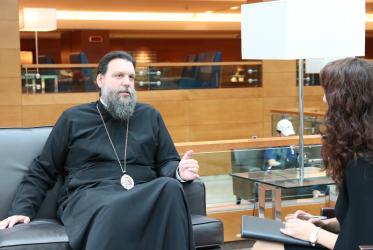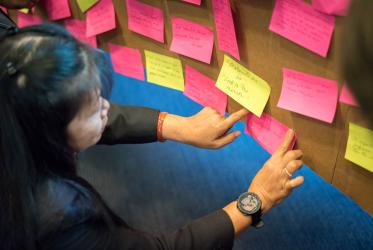Displaying 1 - 20 of 31
04 April 2024
Church of Sweden publicly apologises for abuse of Sámi people
26 November 2021
Churches in southern Africa stand against violence, xenophobia
10 October 2019
WCC condemns massacre of farmers in Philippines
12 April 2019
Momentum grows for health-promoting churches
07 December 2018
WCC Executive Committee envisions future for one ecumenical movement
08 November 2018
Yet another sad anniversary for Christians in war-torn Syria
17 October 2018
Doing his best without being the best
07 September 2018
“Love will find a way”
23 August 2018
#WCC70: Fellowship of women and men – with ups and downs
17 August 2018
#WCC70: A prayer about health and healing
20 July 2018














